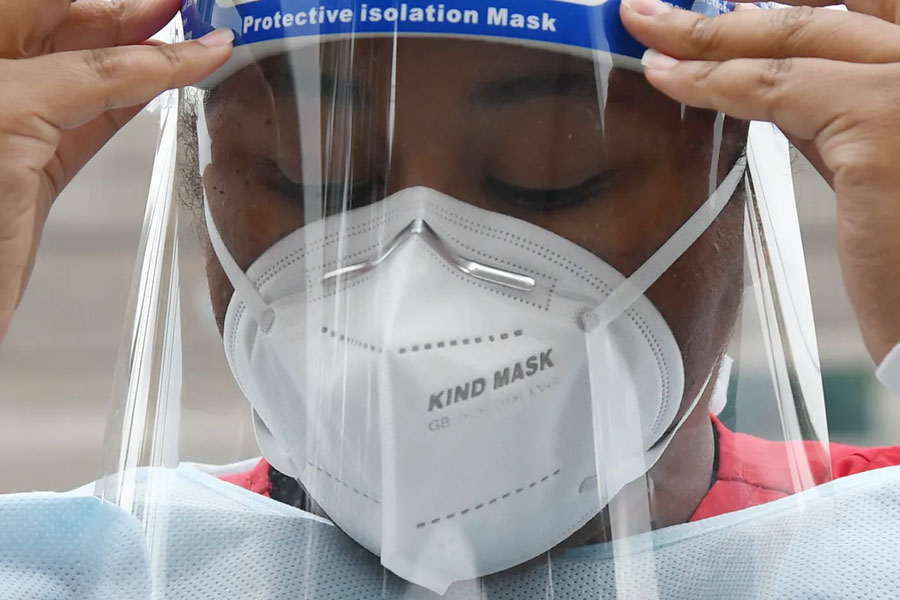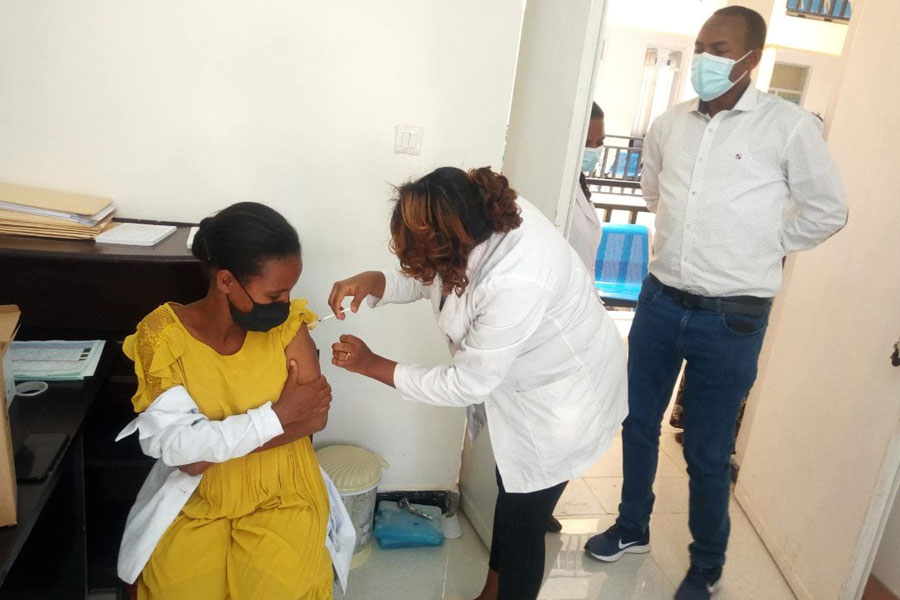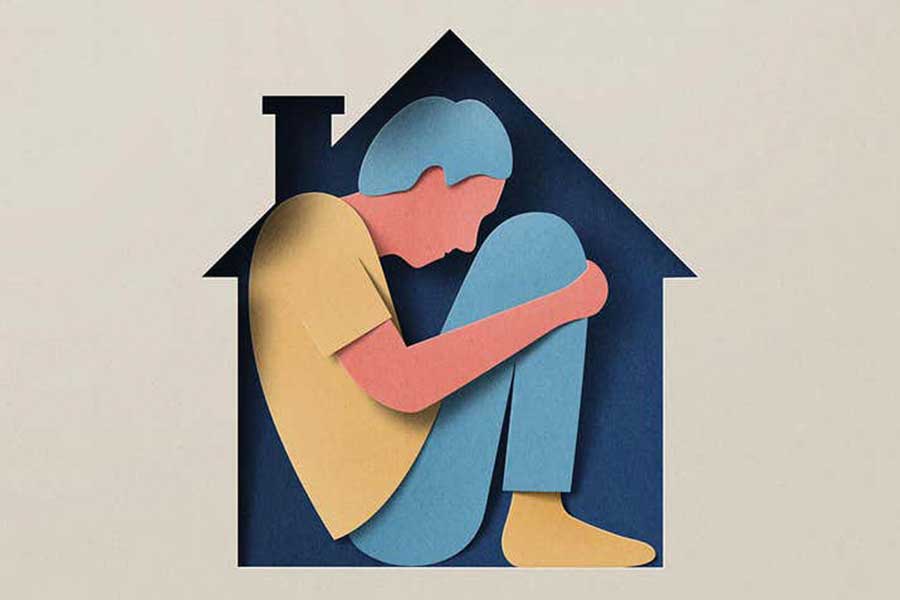
Aug 22 , 2020
By Eden Sahle
A few weeks back not far from our neighbourhood, a person diagnosed with the Novel Coronavirus (COVID-19) died. Of those who attended his funeral, several were found to be positive in a test conducted after contact tracing. One of the women has already lost her life, while the rest are undergoing quarantine, hoping for the best. This week a friend told me in disbelief that a young and fit person he knew at his local church had lost his life due to the illness.
For me, the contrast to how the year started cannot be starker. The future seemed promising, and I was looking forward to discovering what it had to offer. I was grateful for my family, friends and satisfying professional life. Then COVID-19 hit and cut short my idealism. The process of understanding the new normal was not easy. Losing crucial projects and missing friends and social get-togethers has not been easy. The emotional stress was real and palpable. We were all suffering together.
Now, the deaths are hitting closer to home. Dozens of people are dying every day, and thousands are being diagnosed with the illness. There are tens of thousands of cases of COVID-19 currently, enough to shock us out of our reverie.
Unfortunately, too many have not adjusted their lives to the current situation and forced others to join them. In just the past five months, since the first case was reported in Ethiopia, I continue to receive condemnation from friends and acquaintances for refusing to attend social get-togethers. To make matters worse, these gatherings reveal a disregard for the rules requiring social distancing and face coverings. They are socialising as usual.
For a large number of people, the daily death and infection reports seem irrelevant, as if the virus will not reach them. They do not feel responsible, but they are nonetheless complicit in the spread of the virus that is taking so many lives, hopes and dreams.
The irresponsibility that is being shown by many in the public comes in the face of warnings that the spread of the virus is reaching a point where the health sector can no longer manage it. Those who are showing COVID-19 symptoms seeking tests to confirm their status are told to stay at their home by medical institutions which are not able to provide them with a test. The health authorities themselves have prepared mechanisms under which people can be treated at home when they have the virus.
As the public hospitals and isolation centres fill up with patients, private health institutions have also been allowed to begin service to provide care for people with the virus. But the prohibitory cost – in the hundreds of thousands of Birr in the private hospitals that have started providing the service - is unthinkable for large swaths of our population. There is, as of yet, no substitute for avoiding the virus altogether.
People will not like hearing what they are uncomfortable with, but there is a need for them to understand where the country is heading. The current ongoing awareness creation campaigns should incorporate the many examples we are hearing now of the costs of irresponsibility.
For this reason, and perhaps more than ever before, we must be conscious of our actions and how they reverberate around those close to us. It has an impact on our health and that of others more than at any other time. We should not live to please those who are trying to put us at risk. Rather, we need to keep in mind that this too shall pass. The sacrifices we are being asked to make are only temporary.
We can come out stronger as a society from this pandemic if we do what we are expected to do. Catastrophic events, crises and life-changing transitions are a part of life. They are not intractable, and it is clear we have the tools to get past them. What we lack is character and the strength of mind to cross a bridge that only seems scary.
PUBLISHED ON
Aug 22,2020 [ VOL
21 , NO
1060]

Radar | Aug 06,2022

Viewpoints | May 25,2019

Fortune News | Apr 03,2021

Fortune News | Apr 10,2021

Covid-19 | May 31,2020

My Opinion | 131548 Views | Aug 14,2021

My Opinion | 127903 Views | Aug 21,2021

My Opinion | 125879 Views | Sep 10,2021

My Opinion | 123510 Views | Aug 07,2021

Dec 22 , 2024 . By TIZITA SHEWAFERAW
Charged with transforming colossal state-owned enterprises into modern and competitiv...

Aug 18 , 2024 . By AKSAH ITALO
Although predictable Yonas Zerihun's job in the ride-hailing service is not immune to...

Jul 28 , 2024 . By TIZITA SHEWAFERAW
Unhabitual, perhaps too many, Samuel Gebreyohannes, 38, used to occasionally enjoy a couple of beers at breakfast. However, he recently swit...

Jul 13 , 2024 . By AKSAH ITALO
Investors who rely on tractors, trucks, and field vehicles for commuting, transporting commodities, and f...

Jun 28 , 2025
Meseret Damtie, the assertive auditor general, has never been shy about naming names...

Jun 21 , 2025
A well-worn adage says, “Budget is not destiny, but it is direction.” Examining t...

Jun 14 , 2025
Yet again, the Horn of Africa is bracing for trouble. A region already frayed by wars...

Jun 7 , 2025
Few promises shine brighter in Addis Abeba than the pledge of a roof for every family...

Jun 29 , 2025
Addis Abeba's first rains have coincided with a sweeping rise in private school tuition, prompting the city's education...

Jun 29 , 2025 . By BEZAWIT HULUAGER
Central Bank Governor Mamo Mihretu claimed a bold reconfiguration of monetary policy...

Jun 29 , 2025 . By BEZAWIT HULUAGER
The federal government is betting on a sweeping overhaul of the driver licensing regi...

Jun 29 , 2025 . By NAHOM AYELE
Gadaa Bank has listed 1.2 million shares on the Ethiopian Securities Exchange (ESX),...